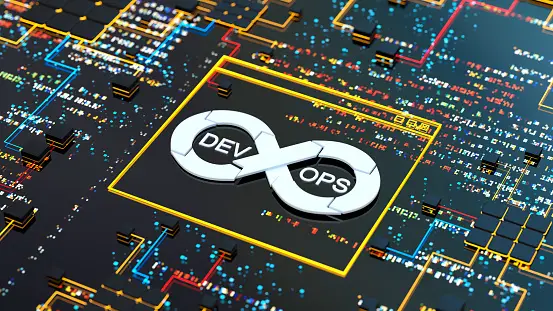DevOps, short for Development and Operations, is a set of practices, principles, and cultural philosophies aimed at improving collaboration, communication, and integration between software development teams and IT operations teams. The goal of DevOps is to shorten the software development lifecycle, increase the frequency of software releases, and deliver high-quality, reliable software products to customers more efficiently.
Key principles and practices of DevOps include:
- Continuous Integration (CI): Developers frequently merge their code changes into a shared repository, where automated builds and tests are triggered. CI ensures that code changes are continuously integrated and validated, helping to detect and address integration errors early in the development process.
- Continuous Delivery (CD): Continuous Delivery extends the principles of CI by automating the deployment process to production-like environments. With CD, every code change that passes automated tests is automatically deployed to a staging or production environment, allowing teams to release software updates quickly and with confidence.
- Infrastructure as Code (IaC): Infrastructure as Code involves managing and provisioning infrastructure resources (e.g., servers, networks, databases) through code and automation tools. IaC enables consistent, repeatable, and scalable infrastructure deployment, reducing manual errors and increasing infrastructure agility.
- Automation: DevOps emphasizes automating repetitive tasks, such as code builds, testing, deployment, and infrastructure provisioning. Automation improves efficiency, reduces human error, and enables teams to focus on higher-value activities, such as innovation and problem-solving.
- Monitoring and Logging: DevOps promotes the use of monitoring and logging tools to track the performance, availability, and health of applications and infrastructure. Monitoring helps detect and diagnose issues in real-time, while logging provides visibility into system events and behaviors for troubleshooting and analysis.
- Collaboration and Communication: DevOps encourages collaboration and communication between development, operations, and other cross-functional teams. Teams work together to share knowledge, align goals, and resolve issues quickly, fostering a culture of transparency, trust, and accountability.
- Feedback Loops: DevOps relies on feedback loops to continuously improve processes, products, and services. Feedback from customers, stakeholders, and monitoring systems informs future development efforts, driving iterative improvements and innovation.
- Culture and Mindset: DevOps emphasizes cultural values such as shared responsibility, empathy, learning, and experimentation. It promotes a culture of continuous learning, where teams are empowered to take ownership of their work, embrace change, and adapt to evolving business requirements.
Overall, DevOps is a holistic approach to software development and IT operations that emphasizes collaboration, automation, and continuous improvement. By adopting DevOps practices and principles, organizations can accelerate time-to-market, improve product quality, and enhance customer satisfaction.






Comments (2)
Obila Doe
Our infrastructure management approach is holistic, addressing capacity monitoring, data storage, network utilisation, asset lifecycles, software patching, wired and wireless networking and more.
James Weighell
A hosted desktop solution allows for the delivery of a consistent and scalable IT experience for all users in an organisation. With this solution, users gain access via a desktop icon or link.